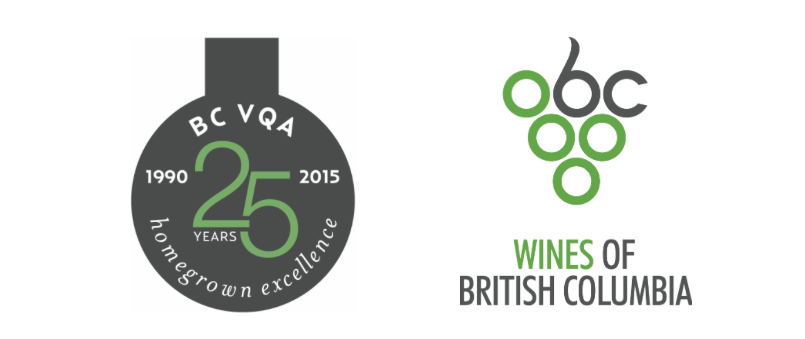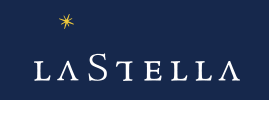In 1990, a small group of pioneering winemakers and grapegrowers came together to create the British Columbia Vintners Quality Alliance (BC VQA) and the BC Wine Institute (BCWI).
“Twenty-five years ago, we needed to implement standards for the industry,” said founding member George Heiss, of Gray Monk Estate Winery. “Establishing BC VQA was the starting point to help move our industry forward. Now, with over 240 wineries in BC, we continue to be amazed at the growth and feel that BC VQA wines are essential to our industry’s growth and success.”
Heiss was one of only seven founding members of the BC Wine Institute, many of whom are still in business today, including Adolf Kruger of Wild Goose Vineyards & Winery in Okanagan Falls, Lanny Martiniuk from Stoneboat Vineyards and Harry McWatters of TIME Estate Winery, both based in Oliver, BC.
The founding of the BCWI and subsequently the Vintners Quality Alliance in BC resulted from the onset of the North American Free Trade Agreement. What followed was the removal of the majority of French hybrid and labrusca vines, that were quickly replaced with the vinifera varieties which today make up 97 per cent of the total BC wine grape acreage.
“The free trade agreement was the most significantly impacting event that ever happened to the wine industry in BC,” said McWatters, pointing out that the subsequent BC VQA program set the course for the BC wine industry. “We adopted meaningful standards that gave consumers confidence in truth in labelling and a recognition of quality.”
Kruger vividly recalls the days of having to convince consumers BC wineries were making products that were competitive with the rest of the world. He says it was the marketing provided through the BC VQA program that eventually gave BC wines the reputation they have today.
“The BC VQA designation put BC wines on the map, literally speaking,” Kruger said. “Wines with the BC VQA designation provide assurance that people know what they are getting. Today it is accepted by consumers.”
John Schreiner has been writing about BC wine since the 1980s and is considered a foremost expert on the industry. He says the growth of the BC industry over the past 25 years has been remarkable.
“It would be hard to find a wine region anywhere that has enjoyed such positive change and growth in 25 years,” said Schreiner, referencing the record sales of BC VQA wine recorded in the 12 months prior to March 2014 at $225.9 million, compared with $6.8 million in the 12 months before March 1992.
“The BC VQA designation played a major role in that growth. In the initial years, it attracted consumers to wines of better quality than had previously been offered by many BC wineries,” he added. “Today, when no one doubts the quality is high, BC VQA identifies those wines made from BC grapes and from growers delivering that quality.”
Locally, the farm-to-table movement has continued to solidify BC VQA’s place in the industry, seeing our market share continue to grow, as the BC VQA designation guarantees consumers they are drinking wine made from 100 per cent BC grapes.
But the rapid maturation of the BC wine industry in the last quarter century is not only measured in market share and dollar sales, but can also be measured by the significance of international recognition the industry has continued to receive, the attraction of world-renowned experts to the province and the important role the wine industry has played in driving tourism in BC.
“We haven’t reached capacity for what we can do here,” said BCWI President and CEO Miles Prodan. “We look forward to solidifying our reputation as producers of premium wine on the international stage.”
For details on BC VQA and the Wines of British Columbia, go to WineBC.com. For industry updates and information, go to WineBC.org. To stay up to date on all the winter happenings, like the Wines of British Columbia Facebook page or follow @WineBCdotcom on Twitter.
BACKGROUNDER
BC VQA Decoded
BC VQA (British Columbia Vintners Quality Alliance)
Put very simply, the BC VQA designation is a guarantee that you are purchasing 100 per cent BC wine. BC VQA certified wines are also tasted by a qualified panel to ensure that they are fault free prior to being able to use BC VQA on their labels.
“BC VQA” stands for “British Columbia Vintners Quality Alliance.” The BC VQA program is an “appellation of origin” system. The BC VQA system guarantees 100 per cent BC origin and ensures that qualifying wines meet certain minimum quality requirements. The BC VQA program is operated by the BC Wine Authority (BCWA). The BC Wine Authority is a regulatory body, completely independent from both the BCWI and industry generally, which operates the BC VQA program under authority delegated to it by the Province.
The BC VQA program was created in BC in 1990 when BC winery pioneers initiated it as an industry-operated program. In 2005, after extensive industry consultation, the Province took over responsibility for administration of the BC appellation system by bringing into force the Wines of Marked Quality Regulation and then establishing the BC Wine Authority to oversee its enforcement.
Wines made from 100 per cent BC grapes are submitted to the BC Wine Authority for an assessment to determine if the wine meets BC VQA requirements and technical specifications set out in the Regulation. Only BC Wine Authority approved BC wines are permitted to utilize the BC VQA appellation on their labels. Most importantly, the BC Wine Authority performs audits on all participating wineries and their BC grape suppliers, as well as inspections of retail outlets, to ensure that the wine standards and other requirements of the Regulation are being complied with – and thereby guarantees to consumers that if BC VQA appears on a wine label, the wine is 100 per cent BC.
In addition to BC VQA, the Wines of Marked Quality Regulation also recognizes “Wines of Distinction” – 100 per cent BC wines not bearing the BC VQA symbol and not tasted for quality may be labelled “Product of British Columbia.” These wines must be made from BC grapes, but do not have to go through the BC VQA certification process.
Then & Now: What’s Changed?
1990
17 Grapes Wineries
1,476 Acres Planted
2015
240 Grape Wineries
10,260 Acres Planted
1990
Top Grapes by Acreage
* Riesling (158)
* Chardonnay (106)
* Pinot Blanc (92)
* Ehrenfelser (81)
* Gewürztraminer (75)
2015
Top Grapes by Acreage
* Merlot (1,563)
* Pinot Noir (1,073)
* Pinot Gris (1,114)
* Chardonnay (996)
* Cabernet Sauvignon (755)
About the BC Wine Institute (BCWI)
Since 1990, the BCWI has played a pivotal role in taking BC’s wine industry from a vision to an internationally recognized niche region producing premium wines and providing quality wine tourism experiences.
Representing 135 wineries throughout the province, the mission of the BCWI is to champion the interests of the British Columbia wine industry and BC VQA wine through marketing, communications and advocacy of its products and experiences to all stakeholders.
As part of its mandate, the BCWI supports and markets the Wines of British Columbia, which promotes BC VQA wine. BC VQA gives consumers assurance they are buying a wine that is from 100 per cent BC grapes. BCWI membership represents 95 per cent of total grape wine sales and 94 per cent of total BC VQA wine sales in British Columbia. The BCWI also markets the wine regions of BC; delivers quality trade, media and consumer tastings domestically and internationally; and acts as the voice of BC’s wine industry by advocating to government on behalf of the industry.



